Why do Calathea leaves dry and how to treat it?
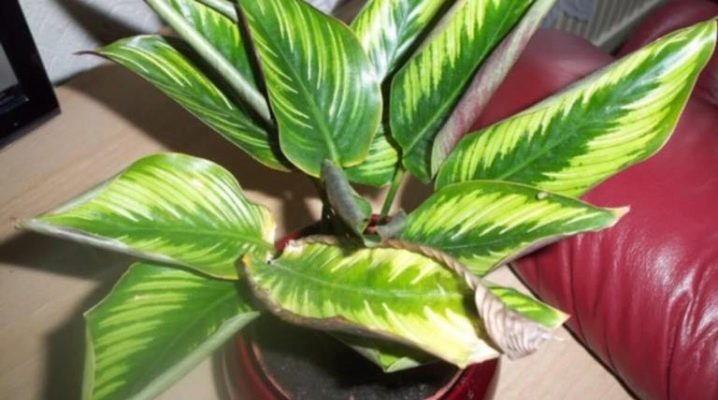
Calathea is popularly called the "prayer flower". Not everyone knows about this graceful ornamental plant. The highlight of this flower is its leaves. And to be more specific, the unusual and intricate patterns on them. Every year calathea forms 5-6 young leaves.
But common mistakes in grooming can be detrimental to their appearance. Drying, yellowing and curling leaves are a very common flower problem. In order for the wayward green beauty to delight with her beauty as long as possible, proper care is necessary for her.
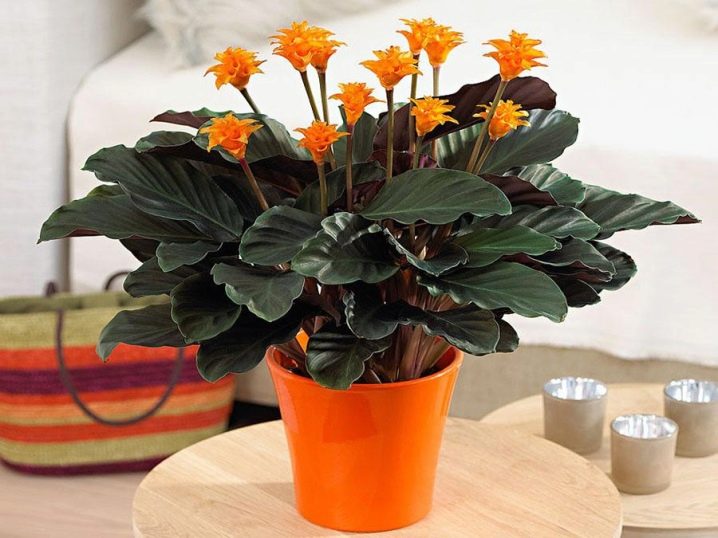
Causes
Leaf curling should not be confused with a natural phenomenon that occurs in a plant at night. Thinking and sounding the alarm is necessary when you observe it during the day.... There can be many reasons for this: from improper air temperature and insufficient moisture to direct sunlight or excess moisture, which causes the root system to deteriorate.
It is also quite possible that the flower is standing in a draft, which is also unacceptable for calathea. If the leaves do not just dry, but also turn yellow, this may be due to improper fertilization of the flower.
How to correctly determine the cause of the drying of the leaves, what to do to help the plant, what emergency measures to take? We will talk about this below.
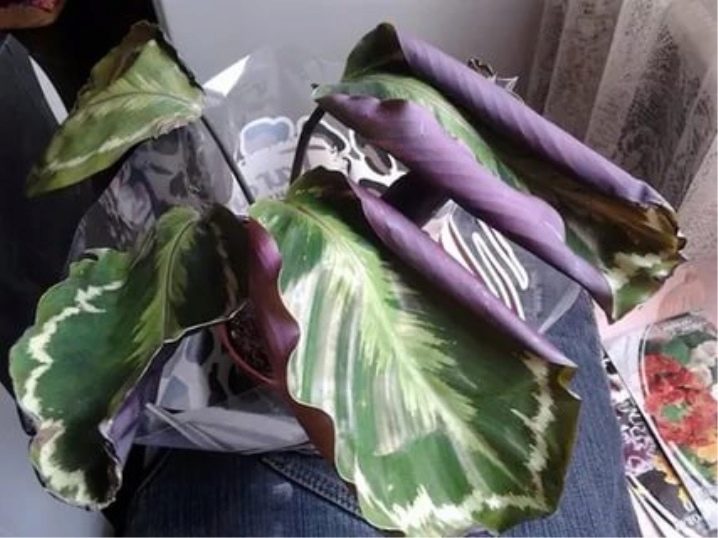
How to take care of it properly?
So that the leaves of calathea do not turn yellow, do not curl or dry out, it is important to provide the flower with proper care.
Air humidity
Low air humidity is categorically contraindicated in Kalatee. In winter, do not put a flower near a heater or battery. In our homes, dry air reigns as it is.
In fact, caring for this capricious plant at home is the organization of a mini-greenhouse, which should be spacious so that condensation does not form. You can also put wet expanded clay near the flower pot. Calathea is a rather moisture-loving plant. Therefore, experts recommend regularly moisturizing it, and the leaves can be wiped off dust with a gauze or cotton cloth.
If the cause of your bush's illness is dry air, and the leaves are very dry, try to "reanimate" the plant in this way. After spraying, immediately cover the flower with plastic without tying it. Repeat this procedure daily.
Open the flower gradually, first for 10 minutes, gradually increasing this interval to half an hour, and after a week you can remove the polyethylene. The leaves will quickly acquire freshness and a shiny color. Well, if it happens in winter and the room is constantly hot and the air is too dry, you will have to hold the calathea in a "plastic wrap" until the heating is turned off.
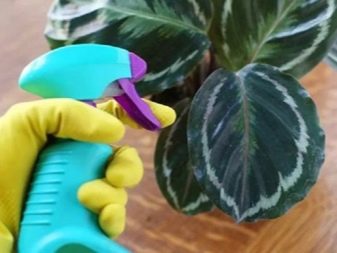

Watering
Despite the fact that calathea is a moisture-loving plant, it is still not worth overmoistening the soil so that the root system does not rot. Moisten the earth in moderation. Calathea does not tolerate the ingress of water on the leaves, from this they twist and begin to fall off. Water the flower gently and gently. Do not spray in different directions, do not water the plant with too strong a stream.
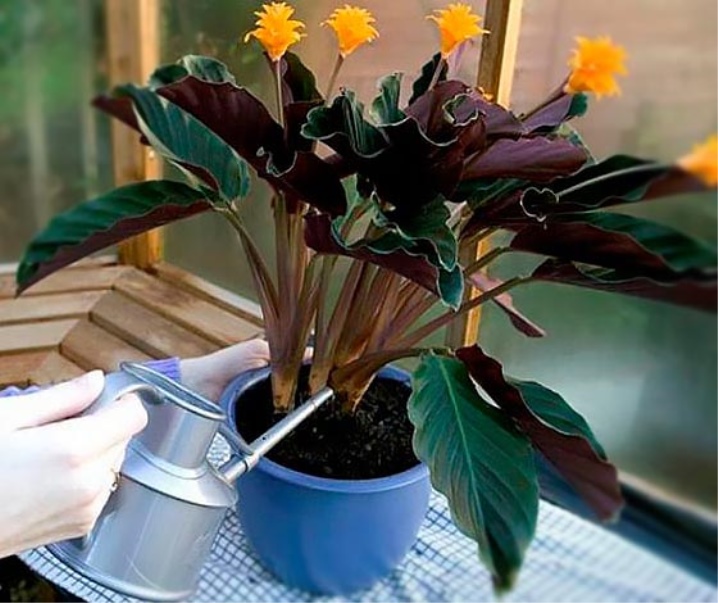
Illumination
To form a suitable environment for an exotic flower, you need to adhere to the recommendations regarding the correct level of illumination in the room where the calathea is located. Locate it in a place without direct sunlight, it can be furniture or a windowsill.
Do not forget that in a shaded place the leaves of the flower will grow better and better. Do not rearrange the flower unnecessarily. Adaptation takes a very long time, this will be reflected in the flower.

Calathea loves stability in grooming. After bringing the flower home from the store, be sure to create about the same atmosphere in which it was. The plant is difficult to tolerate the change of any factors. Calathea is, in a sense, ambivalent in her departure. She does not like direct sunlight, but at the same time, she cannot do without light.
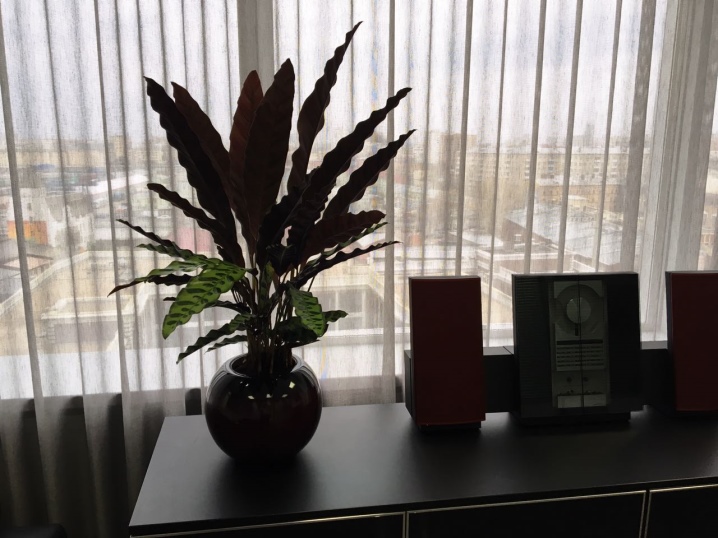
Usually dry spots on top of leaves are sunburn marks. The situation is aggravated if the flower is sprayed in the scorching sun, when the drops act as lenses. If you find the flower in a slightly shaded place, then drying leaves will no longer be a problem for you.
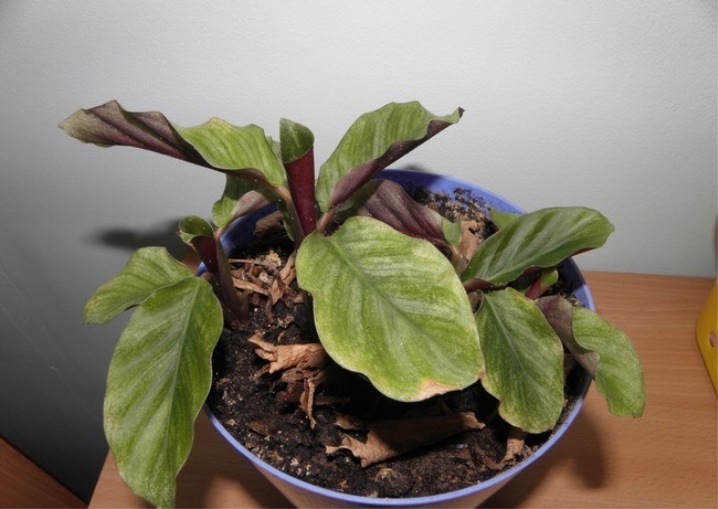
Temperature
The air temperature should be about 20 degrees Celsius in summer, and at least 16 degrees in winter. At the same time, in the cold period, watering and moisture should be significantly reduced. The plant reacts very badly to changes in temperature, which can affect the appearance of the leaves.
Also, a very common reason for their twisting and drying is a draft. A change in temperature always affects the health of the flower. It should not change, this will immediately lead to the death of the plant.
The wayward and capricious calathea needs protection and proper care. It is necessary to find a middle ground in order to maintain the correct temperature regime.
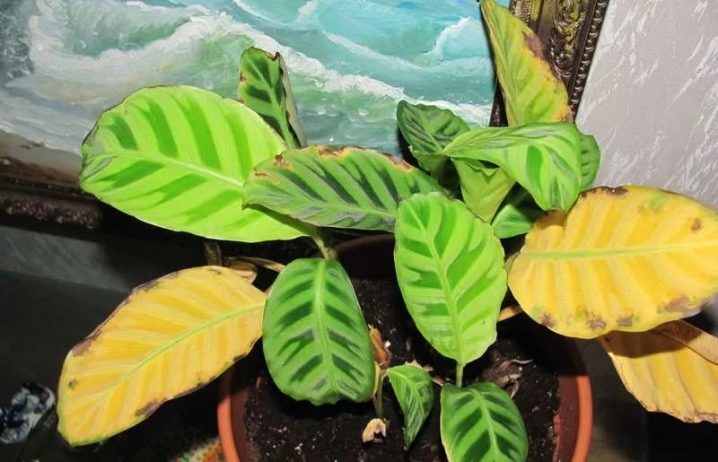
Top dressing
If you see that the tips of the leaves turned yellow and began to dry out, carefully examine the roots of the plant, remove the rotten fragments, transplant the plant into new soil... After transplantation, for prevention, you can treat calathea and the surface of the soil "Epinom".
Top dressing is necessary during the flowering period. From March to September, it is recommended to fertilize the plant once every 2 weeks. Strictly follow the instructions and recommendations of experts, adding nutrients to the soil. This will help preserve and protect the plant from drying out and falling foliage.
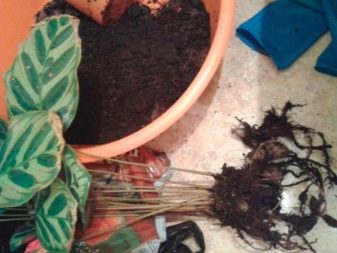

Tips from experienced florists
Ideally, calathea is not a plant for apartments, but for greenhouses. As already noted, so that the leaves do not dry out and do not curl, you need to provide a special microclimate in the room. And if you don't want to mess with expanded clay, wet towels and air humidifiers, then you can put the calathea on the aquarium, which is in a bright room, but not near the window... In the opinion of the flower growers, there will be no need to spray and illuminate anything additionally.
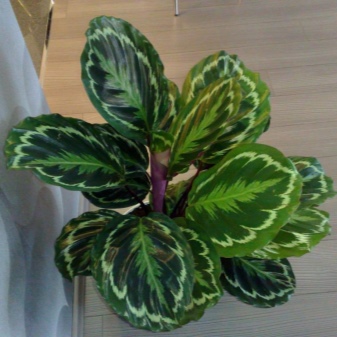
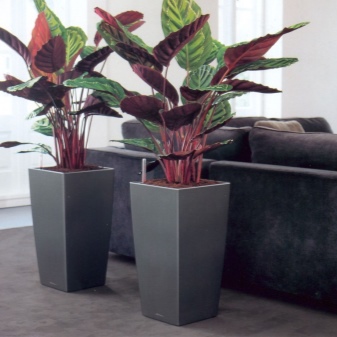
In addition to natural factors, pests are also dangerous for calatheas. Spider mite envelops the leaves, as a result of which a characteristic white bloom appears. The leaves begin to dry and die.
You can't wait for the parasite to start in your flower. Prevention is the best way to avoid leaf wilting. Wipe the leaves with warm water and ammonia. This procedure will eliminate any pest.
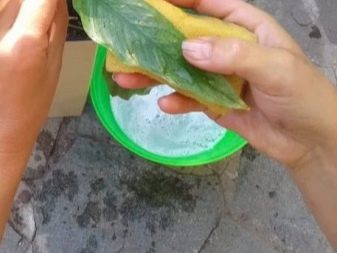

Calathea is a plant of divine beauty, but to maintain such a feature, it is necessary to groom and cherish a capricious flower. Not everyone can handle this. Therefore, before you start or buy a calathea, think and decide if you have the strength and knowledge to take care of a very picky plant.
You will learn how to treat calathea if its leaves are drying out from the video below.




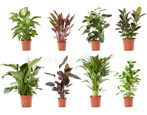
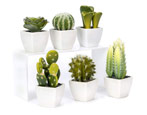
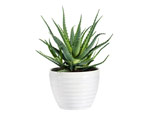
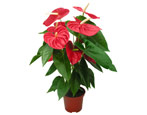
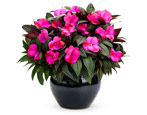
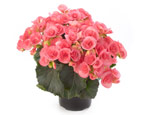
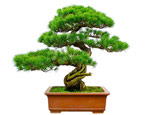
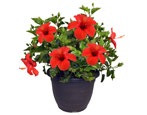
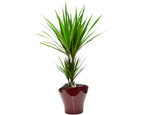
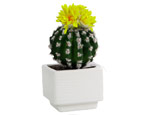
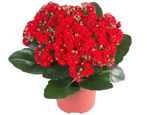
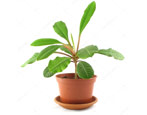
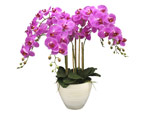
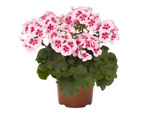
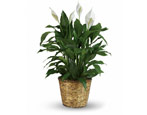
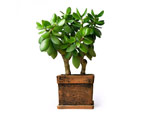
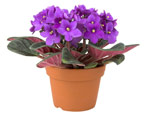
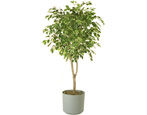







The comment was sent successfully.